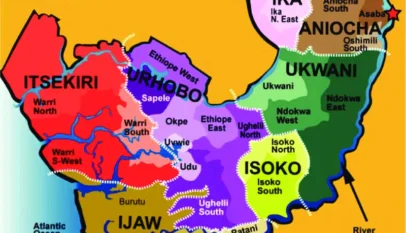Photo: WHO DG, Dr. Tedros Adhanom Ghebreyesus
…What to Know About Cholera, Prevention and Control
Angola is currently experiencing its worst cholera outbreak in over two decades, with the highly infectious disease spreading rapidly across 17 of 21 provinces since January 2024. According to United Nations health agencies, the Angola cholera outbreak of 2025 has resulted in nearly 600 deaths and more than 18,000 reported cases.
Government and WHO Respond to Cholera Crisis in Angola
To contain the spread of cholera, Angola’s Ministry of Health, in collaboration with the World Health Organisation (WHO), has deployed rapid response teams. These teams are conducting community outreach and emphasising cholera prevention strategies, such as handwashing, safe food practices, and the use of clean drinking water.
“We walk around with loudspeakers, urging people to do what they can to get rid of this evil,” said António Catunda, a Health Promotion Supervisor.
In February 2024, the government launched a cholera vaccination campaign, reaching over one million people. Despite this proactive response, the cholera case fatality rate (CFR) in Angola stands at 3.2%, well above the WHO-recommended threshold of 1% for effective outbreak management.
Health Workers Overwhelmed by Cholera Outbreak
Frontline health workers continue to face intense pressure. Many are overworked and emotionally drained due to the high volume of cases and limited resources.
“We’re tired of seeing deaths… but we won’t stop until this is over,” said Flávio Njinga, a community development and health agent in Angola.
Regional Cholera Outbreaks in Africa
The cholera outbreak in Angola is part of a broader regional health crisis. Since January 2024, over 178,000 cholera cases have been reported across Eastern and Southern Africa, according to UNICEF. Alongside Angola, South Sudan is among the worst-affected countries.
Angola’s last major cholera epidemic occurred in 2006, claiming 2,700 lives. These outbreaks are often worsened by poor sanitation, limited access to clean water, and flooding during the rainy season.
Causes, Symptoms, and Prevention
Cholera is a waterborne disease caused by the bacterium Vibrio cholerae. It is primarily spread through contaminated water and food and can lead to severe diarrhoea, dehydration, and death if untreated.
Cholera Symptoms:
- Profuse watery diarrhoea
- Vomiting
- Rapid dehydration
- Muscle cramps
- Weakness and fatigue
How to Prevent Cholera:
- Drink only clean, treated water
- Wash your hands regularly with soap
- Avoid raw or undercooked food
- Sanitise cooking and eating utensils
- Use latrines or properly dispose of human waste
Angola Cholera Emergency: Long-Term Solutions Needed
While vaccination campaigns and emergency aid are helping in the short term, experts warn that long-term investment in water and sanitation infrastructure is critical to prevent future outbreaks. Angola must also expand access to healthcare services, public health education, and early detection systems.
International partners such as the WHO, UNICEF, and humanitarian organisations continue to support Angola by providing cholera vaccines, medical supplies, and technical expertise.


































